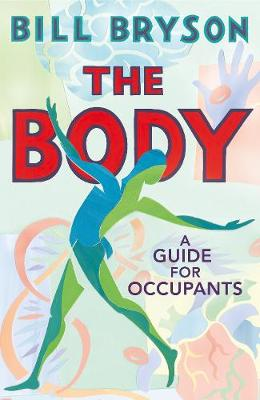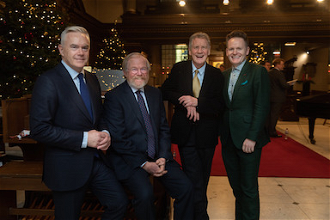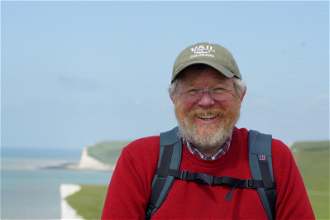Book: Who made us? - Bill Bryson's The Body

The Body by Bill Bryson. Publisher: Doubleday, £25
Bill Bryson has produced another best-selling tome, explaining human biology in a breezy and accessible manner. He amazes the reader with extraordinary facts about how superbly adapted our bodies are: Darwin would approve. The reader marvels at the complexity and brilliance of organs or bones they never previously considered. It is like walking through a rainforest with a guide who points out the clever ways in which every living plant and creature is interconnected and vital for the survival of both the forest and the planet.
But for readers of Independent Catholic News, this book could be subtitled Arguments for the Existence of a Prime Mover. It is hard to put down Bryson's latest tome without wondering what our supremely sophisticated bodies are for, if our development was all accidental.
If you endure social occasions in which ill-manner atheists torment you about your faith, this book might provide material to rebut them: how can they insist that the universe is random and meaningless when they are confronted by the wonder of the inner ear or white blood cells or lungs? On the subject of lungs, ours are so well designed to absorb and excrete the necessary volume of gas that if they were laid out flat, they would be the size of a tennis court. This is typical Bryson: astonishing us with factoids that allow us to grasp otherwise impenetrable information. What we have learned recently about ourselves is remarkable: but Bryson also reveals how little we still know about some aspects of human biology. No one knows why we yawn or sleep, for instance.
He is at his most acute when he tackles increasing rates of obesity, with particular fury focused on his native land. Americans consume 25% more calories now than in 1970. They eat on average 268 pounds (122 kilos) of meat annually, compared to 185 pounds or 84 kilos in the UK. The average young American male has 40 teaspoons of added sugar each day (excluding the sugar naturally occurring in fruit or carbohydrates). A 30-year-old man in Harlem is at greater risk of dying than a 30-year-old in Bangladesh. Today, the average American walks only a third of a mile (2,740 steps) each day, and that includes moving around their home or work space.
Anyone concerned about the implications of Brexit should know that American food safety standards leave something to be desired. The Food and Drug Administration reports that 84% of US chicken and 70% of ground beef contains E Coli. Each year 3,000 Americans die of food poisoning, and there are 1.1 million cases of salmonella (named for a scientist called Daniel Salmon, nothing to do with fish). These statistics are proportionally far greater than the UK or European equivalents.
Although only 18% of Americans now smoke (down from 80% of men in 1950), one third of people living below the poverty line smoke. It would be helpful to have more such detail about different social classes and ethnicities, because of the inequality it reveals. For instance, Bryson does not look at how African Americans are disproportionately affected by some diseases, and how pharmaceutical companies don't develop or test enough medicine suited to African American physiology. He also tailors his book at his market (the Anglosphere), largely missing out the neglected illnesses causing unnecessary misery in the developing world. He quotes improved rates of maternal and infant mortality in the North America and Europe, without registering the persisting high prevalence of both in the developing world.
Bryson tells many inspiring stories about scientists struggling against prevailing ignorance to find the cures which have revolutionised life in the wealthy white world. However, it is disappointing he did not find space to mention Jim Grant, the heroic UNICEF director whose programme of vaccination and diarrhoea treatment has probably saved more lives that Hitler, Mao and Stalin together extinguished. For such a well-travelled writer, it is curious that Bryson's blind spot is the developing world. Perhaps they don't have enough money to buy his books.
The Body by Bill Bryson. Publisher: Doubleday, £25


















